Eve of the Serpent Read online
Page 8
‘A link between the great testament Joseph brought you, and this Sabean stone.’
Nechtan’s eyebrows rose; he was impressed by Prytani’s knowledge.
Prytani hid her sigh of relief. She had feared that any mention of the stone would lead to an accusation from Nechtan that he had seen, through Cructan, Tamesis wandering amongst his texts and artefacts.
Perhaps the connection between the wizard and his magpie wasn’t as close as that between her and Tamesis.
‘The wandering of the Israelites?’ Prytani asked innocently. ‘What do you know of that?’
*
‘So, you’re saying that it’s pointless to try and work out where the Israelites journeyed? That it simply represents a giving up of their other gods?’
Having stopped at a spring of bitter water at Marah, the Israelites had carried on towards Elim, where there were twelve springs of water and seventy palm trees. From here, they passed through the wilderness of Sin to briefly settle in Riphidim.
As first the lady and now Prytani had explained, Marah is the benevolent water goddess, daughter of Athirat, and Anat’s twin sister – but her name would come to stand for bitterness, even venom.
Elim is an ancient word for gods, the Great Mother Goddess Asherah giving birth to seventy divine children and twelve gods, her symbols being those of the palm and the spring.
Sin was a onetime god of the moon, while Riphidim is also called Massah or Meribah, other names for Marah – and so Moses will produce drinkable water from the rock for the thirsty Israelites.
Strangely, it isn’t a complete rejection of all the old gods.
Moses made a bronze snake, placing it on a pole, such that anyone bitten by a serpent who looked at it would live. And this serpent continued to be worshiped even in Solomon’s temple for almost two hundred and fifty years. Reforming kings finally removed it, along with the Asherah poles – Asherah herself being linked to healing and immortality through the twin serpents she usually holds, one in each hand.
‘All this is in Kings, yes?’ Nechtan interrupted excitedly. ‘The women were weaving tapestries for Asherah in the temple: to drape on the poles as her marriage clothes?’
Prytani more or less ignored him, trying to clearly remember everything the lady had told her.
‘She was Queen of Heaven, married to El. Her power is shown by the way she rides upon the back of a lion, her links to the moon by her crescent horns encompassing a full disc. Naked, she sometimes holds in each hand not serpents but palm leaves, as all those eating from her tree will find wisdom and life.’
‘The Tree of Wisdom and the Tree of Life?’
‘They are one and the same: Wisdom shall be a Tree of Life to all who lay hold on her.’
‘Proverbs?’ Nechtan said with obvious satisfaction. ‘Yes, yes; Joseph’s testament speaks of all these things!’
‘And doesn’t it also speak of the menorah, itself a stylised tree, with cups to be shaped in the form of almonds? Well, according to the lady, the Greek for almond, amugdale, comes from an older form in Joseph’s language, m gdlh – or Great Mother.’
Nechtan briefly paused as he pondered this, perhaps comparing it against his own knowledge of other languages.
‘Anything else?’ he said eagerly. ‘What else are you to tell me?’
‘As before, she said you must absorb what you are told on each telling, before she can tell you anything more.’
Nechtan nodded, as if seeing the wisdom of this. He looked about him at the landscape they were passing through with rapidly growing boredom.
Prytani smiled to herself. She had met other people like Nechtan who, failing to see the beauty and wonders of nature, wished only that they were back in a room, thinking they could learn everything they needed to know purely from books.
Groups of people were gathering around a holy well, a small portion of them actually circling it a number of times. At some point, everyone would dip a finely coloured piece of cloth in the waters, then drape it across the branches of a nearby hawthorn tree, gifts for the spirits believed to live here.
Tamesis nosily rushed amongst them, watching their actions intently.
Nechtan frowned, sighed, seeing only the long journey stretching out ahead of them.
He glanced Prytani’s way, pursed his lips thoughtfully.
Once again, Prytani smiled inside. She had seen expressions like this many times before.
He was wondering if talking to her would be slightly less of an ordeal than letting his bored mind fester over his regrets at having to leave all his books of learning behind.
‘The wolf pelt,’ he said finally. ‘You wanted to know a little more about it?’
Prytani nodded gratefully.
‘It was created, so I’ve heard, by hunting down a huge wolf who had been terrorising a vast area; taking away grown men, eating up children as if they were nothing more than tasty morsels. When the king caught it – a king from long ago, when such magic was more commonplace – he had it boiled in magical potions while it was steadily skinned alive.’
‘So it was left as an heirloom to King Cadeyrn?’
Nechtan chortled wickedly.
‘I suppose you could put it that way, yes. Although, personally, I’d tend to put it that our king achieved his goal through a more limited if equally effective form of magic.’
Prytani detected a hint of pride in Nechtan’s tone. She stared back at him knowingly, fully aware that he was eager to let someone else know of his genius, despite any danger it might place him in.
‘A simple potion: one that slightly addled the brain.’
Obviously, Prytani thought, he doesn’t think I’m in a position to be able to turn this information against him.
He knows he has too much power over me, over whether I live or die.
Besides, who would believe me?
Who would be interested, anyway, when the original owner of the pelt is dead, and probably equally powerless?
She looked Nechtan’s way again, her expression one of interest, wanting to know more.
‘You’ve got to realise,’ Nechtan continued, keeping his voice low, ‘that the original pelt had even greater powers: it could completely transform the wearer into a huge wolf, leaving only the mind human. Cadeyrn was the then-king’s brother. He came to me for the potion that made the king forget he was human.’
‘So he would remain a wolf?’
‘Well, he would have done if Cadeyrn hadn’t tricked the king’s own men into hunting him down. He wanted the pelt for himself, you see.’
‘But…’
Nechtan nodded, seeing the horror on Prytani’s face.
‘He had his own brother skinned. And even then, after all that, he was disappointed.’
‘Why? The pelt–’ She paused, feeling a little sick as she thought of how the pelt had been created. ‘The pelt transforms him into a wolf, doesn’t it?’
‘Only partly. The human part of him, though – that’s not entirely Cadeyrn.’
‘You mean–’ Prytani had to pause again. The more she thought about all this, the worse it all sounded. ‘You mean it’s his brother? When he wears the pelt, Cadeyrn takes on some of the aspects of his own brother?’
Again there was a nod from Nechtan, this time accompanied with a wry leer.
‘King Cadeyrn hates it too. Can you imagine being partly merged with the brother you’ve had skinned alive?’
‘Alive?’
‘How else could Cadeyrn be sure the pelt would retain its powers? Particularly as he no longer had the necessary potions. We had to make do with oils, herbs, whatever we could think of that would help preserve the skin.’
‘We? You boiled him alive?’
Nechtan shrugged, grinned sickly if unapologetically.
‘Cadeyrn was now my king, remember? Besides, we all have to make use of whatever abilities we have to create our own ascension, don’t we?’
‘And the cloak of wren feathers – is that magic
too?’
Prytani felt a sense of relief surge through her when Nechtan shook his head. She realised she wouldn’t have liked to hear how such a cloak could have acquired its own supernatural powers.
‘No one can recall the potions or spells required to create such a cloak anymore, unfortunately.’
‘And his sword? Is that tale true?’
‘Ha, the one about Sparta’s Sword? Or the one our king tells?’
‘There are two tales?’
‘Of course! The legend of how the sword and sheath came to be: that, I’m sure, is undoubtedly true. As for our king’s account of how he came by Siren – well, it’s true to some extent.’
He chuckled quietly then, as if believing he’d been somehow tricked into divulging too much, he abruptly stared at Prytani suspiciously.
‘You know, girl, sometimes curiosity can bring us down rather than rising us up! Here I am again, the one informing you rather then you informing me!’
‘They were innocent questions–’
‘They are most often the most dangerous! Think, girl, before you ask a question! Otherwise, you may be delving into areas you’re best leaving well alone!’
‘Then there’s no point ever asking you any questions?’ Prytani replied mischievously.
He gave her a leering grin.
‘A trade, then girl: even though you’re not really the one in a position to trade, it amuses me that you seem to think you are.’
‘So, what do you wish me to trade?’
‘This boy who has come with Joseph: what do you make of him?’
Prytani pouted as she thought how best to answer this question.
‘He seems – intelligent, kind.’
Nechtan frowned in disappointment at her.
‘That’s it? Intelligent, kind?’ he said scornfully. ‘Anyone could have told me that! You, girl, you can see his future! Find out what you can about him!’
Although pursing her lips doubtfully, Prytani responded with a nod of her head. She looked Nechtan’s way with a questioning stare.
‘And so – the sword and sheath?’ she asked hopefully.
He laughed disdainfully, flattering himself that he had tricked her.
‘Perhaps, one day, I’ll tell you such a tale. But I think there’s a tale you’ll find far more interesting: for it involves our lady and her tower, and how they both came to be.’
*
Chapter 20
Olwen of the Six Hands
A long, long, long time ago, not long after the White Goddess had walked across the empty universe – her every footprint leaving behind a glowing hawthorn petal, creating the great milky band of stars we now see every night – a master builder and his wife were lamenting their lack of children.
‘Soon I will be too old to have children,’ the woman said, recalling how hopeful they had been, the plans they had made, when she was still a young maiden.
‘From maiden to crone without being a mother,’ she wept. ‘Why would the Great White Goddess treat us so harshly? What can we possibly have done to offend her?’
Her husband shook his head sadly. He couldn’t think of any reason why the Goddess failed to favour them with the child they wanted so badly.
They were good people. They worked hard. They helped those less fortunate than themselves.
‘We entreat the Goddess for her help every night,’ he pointed out miserably. ‘But, it seems, as we ask the Maiden, the Crone takes offence that we failed to ask her. If we ask the Mother, the Maiden acts as if she’s the one snubbed. That’s the only reason I can think of for our lack of a child we can love!’
His wife anxiously grabbed his hands, her eyes wide with panic.
‘Lothan,’ she scolded him, glancing about the room with the fearful expectation that the Goddess herself would appear before them, ‘don’t wish ill upon the Triple Goddess! It will only rebound on you, striking you in the heart!’
‘I’ll beg her forgiveness,’ he promised his tearful wife. ‘I will plead with her once again to have mercy on us. And, this time, I’ll find some way to ensure I don’t slight her in any way!’
*
By the light of a waxing moon, Lothan asked the Maiden for permission to cut away a branch of willow.
By the light of a full moon, he asked the Mother for permission to cut away a branch of hawthorn.
By the light of a waning moon, he asked the Crone for permission to cut away a branch of elder.
He carefully chose, each time, a particular shape of branch, one where the tree forked to sprout into other branches. In this way, he knew, he was allowing the branch itself to indicate and ultimately take the form it aspired to.
To these carefully selected branches, he added white birch, representing what the Lady knows, taking care to remember, too, the beneficial associations of elm, rowan, hazel, apple, alder, ash, yew, cedar and oak. These he would expertly blend into his three carvings, using these and only these to create texture and colour, such that they would be purely of wood yet appear truly alive.
Each statuette was of the young girl he and his wife, Ebur, had always hoped and prayed for.
The first portrayed the girl in a lively dance, her arms reaching out to hold the hands of the Maiden.
The second showed her confidently standing, her arms outstretched in eagerness to embrace the Mother.
In the third, she was on her knees, wringing her hands in her lap, beseeching the Crone for understanding.
Ebur placed these three depictions of their longed-for daughter in the window of their home. Here, each night, the moon would bathe them in its milky glow, the light and shadows granting them a sense of life; a semblance of life that differed with each aspect, waxing, full, or waning.
And each month, Ebur would offer in her outstretched hands a gift of an apple, a sign of her heart, leaving the window open for the birds of the night to feast upon.
*
Ebur was worried that the birth would be a difficult one.
All through her pregnancy, she had been anxious for the wellbeing of her child, as any mother would be.
But, of course, this was a long-awaited child. Moreover, she was a gift from the Great White Goddess. To harm her in anyway would be like hurting the Great Goddess herself.
Yes, Ebur was sure her child was a girl. Often, now, she had felt her child move inside her. Not kicking, but, rather, caressing the inside of her womb, with delicate, tender hands.
At great expense, Lothan employed a renowned midwife to attend the birth, an old crone who had helped bring hundreds of new-born babes into the world.
This midwife reassured Ebur, saying that all new mothers worried in this way: there were no complications, as far as she could tell. She expected nothing less than a regular birth and, under such auspicious circumstances, she had successfully delivered the very healthiest of new babes.
And when the child came, the midwife smiled.
‘See, everything’s fine,’ she playfully scolded Ebur, picking up the newly born child and gently handing her to her mother.
Ebur looked at her daughter in horror.
‘What? What’s wrong?’ the midwife chuckled unsurely.
And then she saw what Ebur saw. Saw what, for some reason, she had been unable to see only a moment ago.
The child had three pairs of arms.
*
‘She’s a monster!’
The midwife was no longer smiling.
She was horrified.
Terrified.
‘Don’t worry: I can take her out, get rid of her for you. Bury her, so that no one need ever know.’
It was Ebur’s turn to be horrified.
‘No!’
She was tending the naked child, no longer seeing the extra arms, seeing only a beautiful, vulnerable baby.
As Lothan watched Ebur, saw the love she had for her child – their child – he, too, no longer saw the extra arms.
He saw the most beautiful little girl he had ever seen.
/>
He knelt by his wife, smiled happily at her, stroked the bared head of his daughter.
This was their wish: a daughter.
He glanced over towards the three statuettes in the window.
Yes, this beautiful girl was indeed what they had asked for. The three beautiful girls in the window, here made manifest.
What right had they to complain?
‘She’s…wonderful!’ he said joyously.
The midwife was amazed.
‘What are you intending to do with her? Bind her arms so one ever sees them? Don’t you think people will hear of this?’
Lothan looked from the old crone to the new born child, so lovingly cradled by her mother.
It was strange, he thought, the way the extra arms seemed at times to vanish from sight. Yet the midwife had spotted them as soon as she had been made aware of them by their own, ridiculous sense of horror.
If she told anyone, then…
‘Is there any reason why anyone should hear of this?’ he asked the old crone.
The midwife took in every aspect of their room with envious eyes.
‘Things have been difficult for me recently,’ she said with a false innocence. ‘You live an enviable life here. You’re so lucky, when compared to a poor woman like me.’
Lothan rose from kneeling beside his wife’s side.
He knew what he had to do.
He placed an arm around the old crone’s shoulder, leading her outside.
‘Come with me,’ he said with a smile. ‘You do deserve to be relieved of your suffering.’
*
Lothan prepared the old crone’s grave at the very summit of a hill, beneath a waning moon.
He realised, though, that he would have to do much more to hide the secret of their child.
They would need a new house, where their daughter could hide away. One situated on the top of a hill like this one, from where they would be able to see anyone coming to call.
He saw a new use for the crone’s old, previously useless body.
Her pounded bones, her collected blood, would help make the most perfect mortar.
Her shredded flesh and muscles, her threaded veins and innards, would form the powerful binding of a strong base.

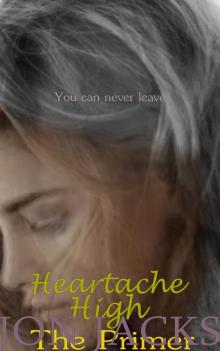 Heartache High: The Primer
Heartache High: The Primer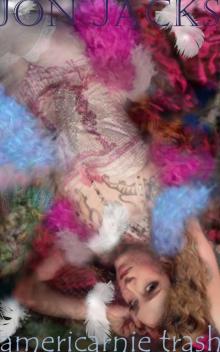 Americarnie Trash
Americarnie Trash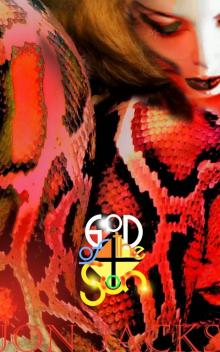 God of the 4th Sun
God of the 4th Sun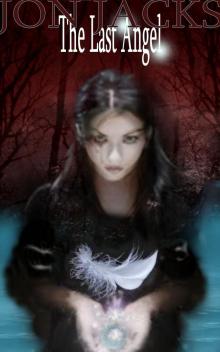 The Last Angel
The Last Angel Wyrd Girl
Wyrd Girl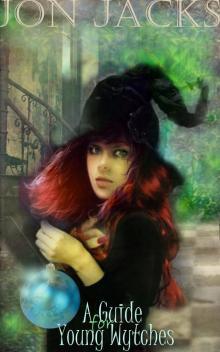 A Guide for Young Wytches
A Guide for Young Wytches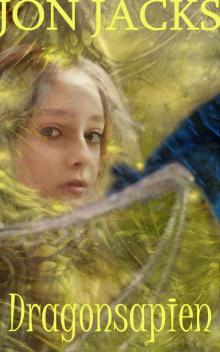 Dragonsapien
Dragonsapien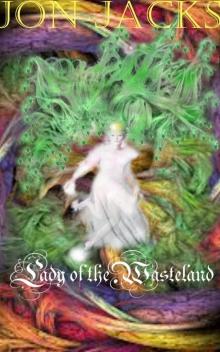 Lady of the Wasteland
Lady of the Wasteland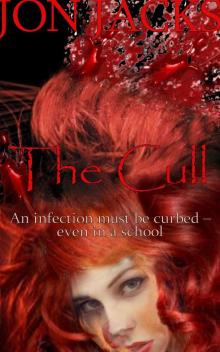 The Cull
The Cull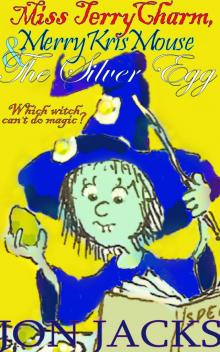 Miss Terry Charm, Merry Kris Mouse & The Silver Egg
Miss Terry Charm, Merry Kris Mouse & The Silver Egg Seecrets
Seecrets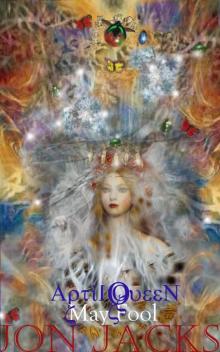 April Queen, May Fool
April Queen, May Fool DoriaN A
DoriaN A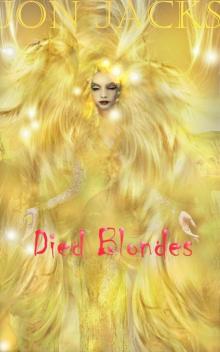 Died Blondes
Died Blondes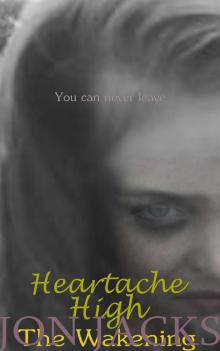 Heartache High: The Wakening
Heartache High: The Wakening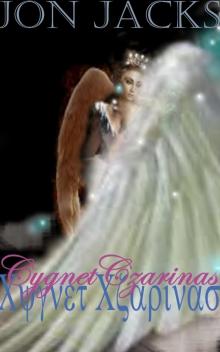 Cygnet Czarinas
Cygnet Czarinas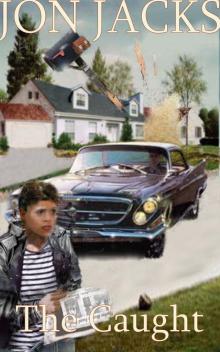 The Caught
The Caught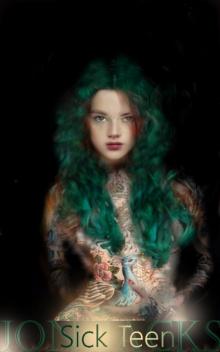 Sick Teen
Sick Teen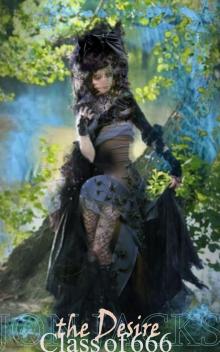 The Desire: Class of 666
The Desire: Class of 666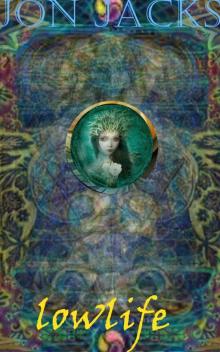 Lowlife
Lowlife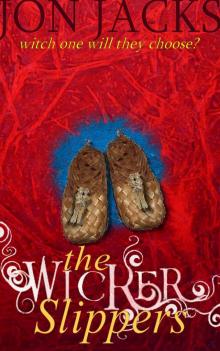 The Wicker Slippers
The Wicker Slippers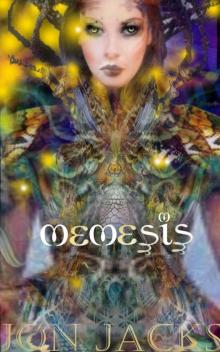 Memesis
Memesis The Rules. Book 1; The End
The Rules. Book 1; The End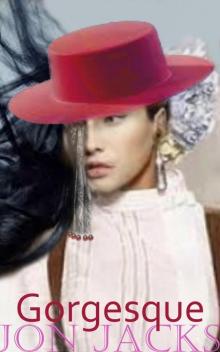 Gorgesque
Gorgesque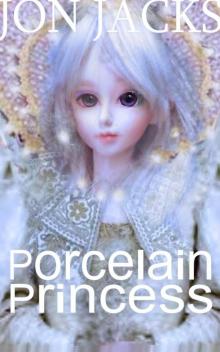 Porcelain Princess
Porcelain Princess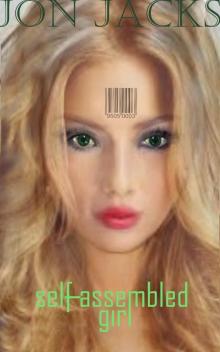 Self-Assembled Girl
Self-Assembled Girl Heartache High
Heartache High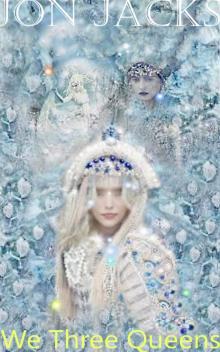 We Three Queens
We Three Queens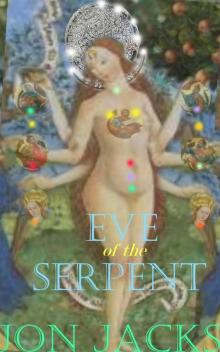 Eve of the Serpent
Eve of the Serpent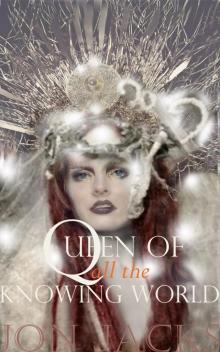 Queen of all the Knowing World
Queen of all the Knowing World The Wendygo House
The Wendygo House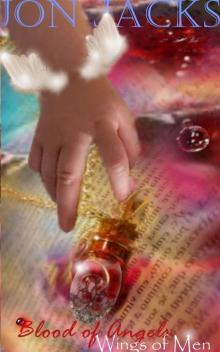 Blood of Angels, Wings of Men
Blood of Angels, Wings of Men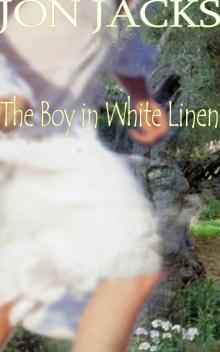 The Boy In White Linen
The Boy In White Linen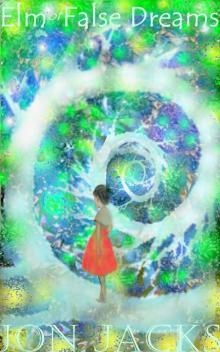 Elm of False Dreams
Elm of False Dreams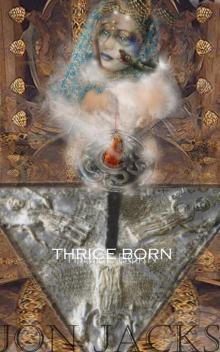 Thrice Born
Thrice Born